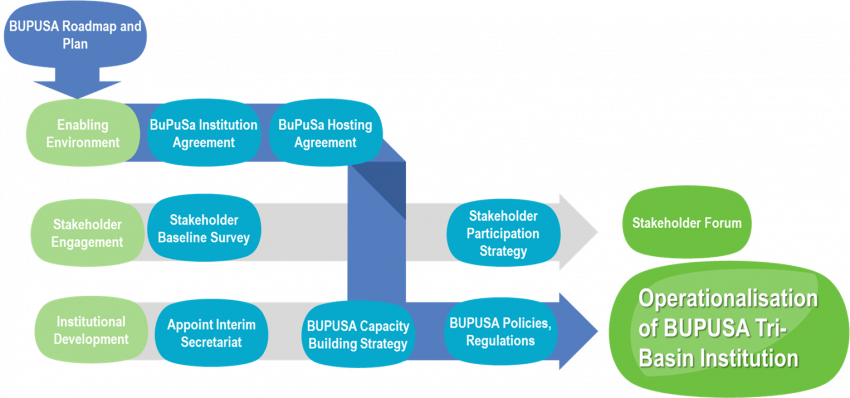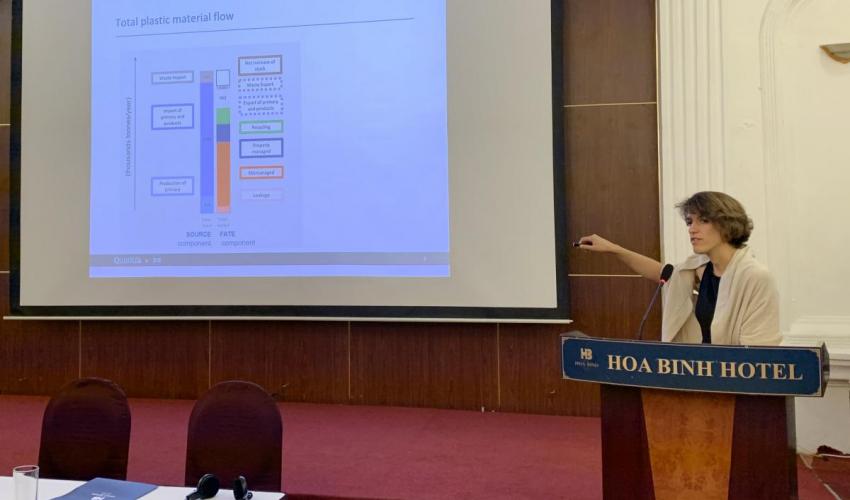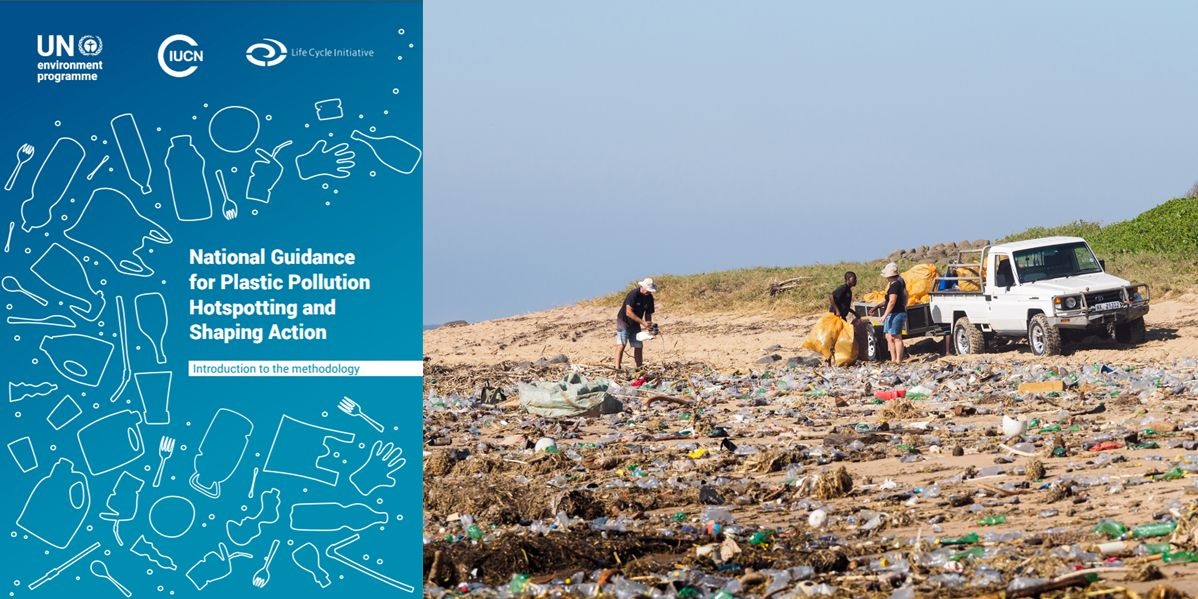3 rivers, 2 countries, 1 vision
The Buzi, Pungwe and Save rivers (BuPuSa) flow through Zimbabwe and Mozambique, representing opportunities for sharing benefits, but also possible risks and water insecurity in the case of a lack of cooperation. A common vision is crucial to address present and future challenges in all three basins related to competing water uses and extreme weather events, like cyclones, floods and droughts.

Photo: © D. Saruchera
Currently, two agreements have been finalized and are waiting for parliamentary ratification in each country. First, an Establishing Agreement for the BuPuSa River Basin Organisation (RBO). Second, a Hosting Agreement to rotate the leadership of the RBO between the two countries on a 10-year basis, although to ensure stability, Mozambique accepted to take on the hosting for the starting 15 years. IUCN has been supporting this process through its Building River Dialogue and Governance programme (BRIDGE), which will soon complete a decade of presence in the basins.
A roadmap to transboundary water governance
The Agreement for the BuPuSa RBO aims at creating a Tri-basin Institution to support the existing Joint Water Commission between the two countries responsible for coordinating efforts for transboundary basin governance and management. Thus, the main mission of the BuPuSa Tri-basin Institution will be to facilitate cooperation and coordinate actions. For such purposes, both nations are reviewing and harmonising water laws, policies and strategies. Figure 1 shows the roadmap to facilitate the operations of the institution, it focuses on creating an enabling environment, engaging stakeholders and consolidating the institution itself.
Despite the current limitations posed by the ongoing, global COVID-19 pandemic, BRIDGE continues to act as a facilitator to create dialogue spaces and build on capacities that strengthen the bilateral negotiations. Along 2021, BRIDGE has supported several workshops and negotiation sessions. During a virtual workshop, held with the basin’s stakeholders in April 2021, thirty participants discussed and learned about two key topics; sustainable financing mechanisms and water diplomacy. Professor Dr Aaron T Wolf from Oregon State University, USA, was one of the guest speakers, and through his presentation, entitled Water Law in Theory and Practice: What happens in the room, emphasized why it is key to develop resilient institutions.
The key is developing more resilient institutions. Once you have a strong institution in place, it can deal with much more change than a basin without --Aaron T. Wolf
Representatives from the Zimbabwe and Mozambique Ministries of Finance and Foreign Affairs participated in the workshops, and got to learn from the lessons shared by the Orange-Senqu River Commission signed between Botswana, Namibia, Lesotho and South Africa (ORASECOM); and the Limpopo Watercourse Commission signed by Botswana, South Africa, Zimbabwe and Mozambique (LIMCOM). Further, the Southern African Development Community (SADC) also presented about the future of RBOs in the regional context.
After the trail of devastation left by the passage of two subsequent cyclones, Idai and Kennet, in March and April 2019, close to 2.2 million people needed urgent assistance in Mozambique alone. Before the cyclones arrived, the region was experiencing an extreme drought, already threatening the water security for over 7 million inhabitants. The sense of urgency is imminent; an institutional framework needs to support heightened cooperation and build resilience to address similar future catastrophes in the BuPuSa basins. For this reason, BRIDGE continues to work on sustainable transboundary basin management in collaboration with regional partners, including the U.S. Agency for International Development (USAID), the Regional Water Partnerships (RWP) from the Global Water Partnership, the German Corporation for International Cooperation (GIZ), WaterNet, Climate Resilient Infrastructure Development Facility (CIRDF), United Nations Educational, Scientific and Cultural Organization (UNESCO), and SADC. In this way, several joint efforts ensure coherence and good use of a much-needed international funding.
At the regional level, IUCN also continues striving for robust water governance, together with Waternet and the Resilient Waters Southern Africa SADC Groundwater Management Institute, BRIDGE is implementing activities and supporting initiatives that enable informed dialogues and contribute to the success of the BuPuSa Establishment Agreement.
Next step: addressing competing water uses, whilst preserving nature
In addition to facilitating transboundary water governance and sustainable management efforts, IUCN (Implementing Agency), together with the Global Water Partnership in Southern Africa (GWPSA) (Executing Agency) are to find local solutions for the Management of competing water uses and associated ecosystems in the BuPuSa basins, through funding from the Global Environment Facility (GEF). The project began in January 2021 and will run until December 2024.
The main goal of the project is to improve water security, climate change resilience, and sustainable livelihoods. For this reason, the outcomes of the project will focus on three topics: (1) flood and drought warning and mitigation; (2) ecosystem conservation and restoration for sustainable livelihoods; and (3) integral basin planning.
In conclusion, tackling the challenges of Buzi, Pungwe and Save rivers requires developing a common vision and cooperation at multiple governance levels. Zimbabwe and Mozambique have advanced in a bilateral negotiation; yet, much remains to be done to materialise such a vision. It is essential to continue building resilient institutions, raising regional awareness and advancing on sustainable basin management to ensure present and future water security.
For more information, please contact Davison.Saruchera@iucn.org
 Overview of the BuPuSa Tri-basin Institution Roadmap
Photo: IUCN
Overview of the BuPuSa Tri-basin Institution Roadmap
Photo: IUCN



